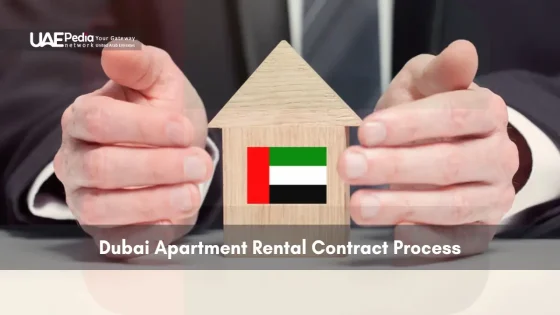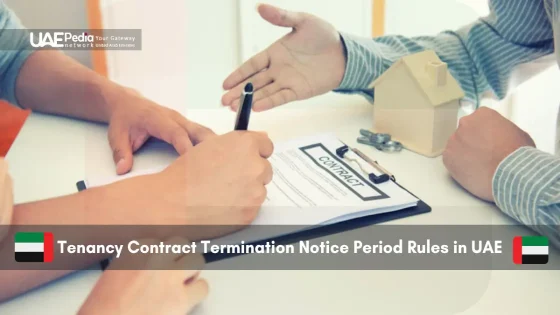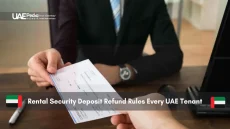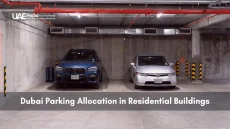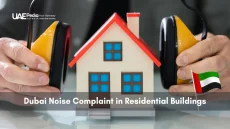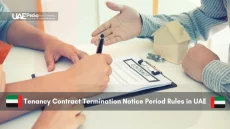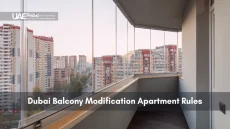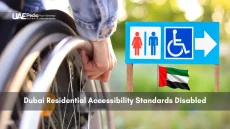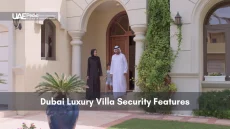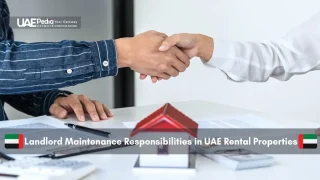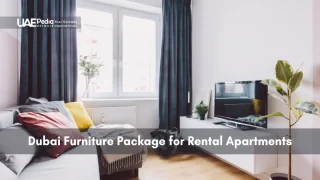Did you know 43% of expats in the UAE cite unclear lease terms as their top relocation stressor? Navigating paperwork in a new city shouldn’t feel like deciphering ancient scrolls. That’s why we’ve crafted this insider’s roadmap to demystify every step of securing your ideal home.
Think of your tenancy agreement as more than just signatures—it’s your shield against misunderstandings. From Ejari registration to security deposits, each clause shapes your living experience. We’ll walk you through the legal must-knows and cultural nuances, whether you’re eyeing a sleek Downtown high-rise or a cozy Deira studio.
This guide blends official Dubai Land Department protocols with real-world tips from longtime residents. You’ll learn why exact move-in condition reports matter more than you’d guess, and how to spot landlord responsibilities hidden in boilerplate text. No jargon, just clarity.
- Why Ejari registration is your golden ticket to tenant rights
- How to negotiate renewal terms before prices shift
- Three clauses every expat should add to their agreement
- Where to find free Arabic-to-English contract translation services
Introduction to the Dubai Apartment Rental Contract Process
Ever signed a document without fully grasping the fine print? In the Emirates’ fast-paced housing scene, your tenancy agreement acts as both compass and safety net. These binding documents transform vague handshake deals into crystal-clear partnerships between residents and property owners.
Why Paperwork Matters More Than You Think
Local regulations like Law No. 26 (2007) turn rental agreements into living documents that grow with the market. One longtime broker puts it best:
“A well-structured agreement is like a roadmap—it shows everyone where they’re going,”
says Amal Khalid, a legal consultant specializing in housing matters.
Modern leases typically include:
| Component | Purpose | Real-World Impact |
|---|---|---|
| Property Specifications | Prevents “not what I expected” surprises | Exact square footage, appliance lists |
| Payment Timeline | Aligns financial expectations | Post-dated checks vs bank transfers |
| Maintenance Duties | Clarifies who fixes what | AC servicing responsibilities |
Market Shifts Meet Modern Solutions
The Emirates’ housing landscape has evolved from simple villas to smart high-rises with IoT integrations. This diversity demands agreements that address everything from balcony usage rules to shared gym access. Updated contracts now reflect sustainability initiatives too—some include energy consumption benchmarks.
Transparent documentation benefits all parties. Owners gain reliable income streams, while residents secure predictable living costs. Recent market data shows neighborhoods with standardized leases experience 62% fewer tenant-landlord disputes compared to informal arrangements.
Mastering the dubai apartment rental contract process
What if a single government portal could shield you from 80% of housing disputes? Emirati law transforms complex paperwork into streamlined digital protections. Let’s unpack the tools that turn stressful negotiations into confident signatures.
Understanding Legal and Regulatory Requirements
Local regulations act like invisible armor for residents. Decree No. 43 (2013) caps annual rent increases at 5-20% based on market comparisons. These rules prevent surprise hikes while ensuring fair returns for owners.
Three pillars uphold every valid agreement:
- Mandatory Ejari registration through the Real Estate Regulatory Agency
- Clear division of maintenance duties (landlords handle structural issues)
- Transparent payment schedules using UAE Central Bank-approved methods
| Regulation | Impact | Your Advantage |
|---|---|---|
| Law No. 26 (2007) | Defines eviction protocols | 90-day notice minimum |
| Rent Cap Calculator | Limits annual increases | Predictable budgeting |
| DLD Dispute Center | Free mediation services | No court fees for minor issues |
Essentials of Ejari Registration
This digital safeguard takes 48 hours once documents are uploaded. Required items include Emirates ID, passport copies, and a signed agreement. Pro tip: Snap photos of all pages before meeting your landlord to speed up the process.
Legal consultant Fatima Al-Mansoori explains:
“Ejari turns paper promises into enforceable rights. Without it, neither party can legally prove terms existed.”
The system offers three key benefits:
- Automatic dispute logging with government case numbers
- Secure deposit tracking through approved escrow accounts
- Instant verification for visa applications
Key Components of a Dubai Tenancy Contract
Ever wonder what turns a handshake deal into ironclad housing security? Your lease agreement’s structure holds the answer. Let’s unpack the non-negotiables that transform generic templates into personalized protection plans.
Who’s Who in Your Housing Story
Every valid agreement starts with crystal-clear identification. Both parties need full legal names, Emirates ID numbers, and current contact details. Pro tip: Verify your landlord’s ownership through the Dubai Land Department portal before signing.
Blueprint of Your Space
The property section acts as your architectural fingerprint. Look for:
- Exact geographical coordinates (building name, unit number)
- Square footage matching RERA’s official measurements
- Inventory lists for furnished units (down to cutlery counts)
Post-dated checks remain the gold standard for payments—typically 1-6 installments. Recent data shows 78% of disputes arise from unclear maintenance divisions. Smart contracts now specify everything from AC filter replacements to balcony plant watering!
Timeframes That Work Both Ways
Standard duration periods range from 1-3 years, with automatic renewal unless either party gives 90-day notice. Termination clauses should outline:
- Early exit penalties (often 2 months’ rent)
- Security deposit return conditions (5% for unfurnished, 10% furnished)
- Property handover inspection protocols
One broker we interviewed shared this wisdom:
“Treat your lease like a custom suit—every stitch should fit your specific needs.”
Legal Framework and Tenant Protections in Dubai
Imagine your lease as a safety net woven from local laws. The system here balances protections for both sides—think of it as a carefully calibrated scale rather than a one-sided shield.
Governing Laws and Regulatory Decrees
Law No. 26 (2007) forms the backbone of housing agreements. It’s like having a rulebook where everyone plays fair. Recent updates introduced the Rent Dispute Settlement Center (RDSC), where 73% of cases get resolved within 30 days. One property manager shared:
“The RDSC process feels like speed chess—structured, fast, and focused on practical solutions.”
Key regulations include:
- Maximum 90-day notice for lease changes
- Mandatory 30-day grace period for late payments
- Automatic renewal unless either party objects
Rights and Responsibilities of Both Parties
Tenants enjoy three ironclad rights: habitable living conditions, uninterrupted occupancy, and capped annual increases. Landlords must handle structural repairs within 14 days—we’ve seen AC units replaced faster than some Amazon deliveries!
Obligations flow both ways:
| Role | Must Do | Can’t Do |
|---|---|---|
| Tenant | Pay on time | Alter walls without approval |
| Landlord | Maintain common areas | Enter without 24h notice |
The magic happens when both sides understand their roles. Proper registration turns paper promises into enforceable actions. Last year, registered agreements showed 40% fewer disputes than informal deals—proof that good paperwork makes great neighbors.
Negotiating Terms and Securing Your Rental Agreement
What if a few simple tweaks to your lease could transform generic terms into personalized protections? The art of negotiation turns standard paperwork into living documents that work for you. Let’s explore how to shape agreements that feel like collaborative partnerships rather than rigid mandates.
Critical Contract Clauses to Consider
Three sections deserve extra scrutiny during discussions. Local legal advisor Rashid Al-Hammadi suggests:
“Treat renewal terms like climate control settings—set them before the heat of market changes hits.”
- Automatic increases: Push for fixed percentages tied to official rent indexes
- Maintenance triggers: Define response timelines for AC repairs (48hrs vs. 5 days)
- Early exits: Negotiate reduced penalties for job relocations
Effective Negotiation Strategies
Successful discussions blend preparation with cultural awareness. Start by comparing clauses to RERA’s standardized templates—this creates objective ground for requests.
| Common Ask | Win-Win Solution | Market Success Rate |
|---|---|---|
| Pet policies | Additional deposit | 82% approval |
| Furniture swaps | Written addendum | 67% acceptance |
| Payment flexibility | Bank transfers | 91% adoption |
Pro tip: Frame requests as mutual benefits. Instead of “I want,” try “This adjustment helps us both by…” Always formalize changes through signed addenda—verbal agreements vanish faster than desert mirages.
Remember, tenant-landlord relationships thrive on clarity. A well-negotiated agreement becomes your compass through the rental journey, not just a list of rules. When in doubt, a quick legal review (AED 500-800) often pays for itself in avoided headaches.
Managing Payments, Deposits, and Maintenance Duties
What separates smooth tenancy from financial friction? Clear money management and upkeep agreements keep relationships sunny-side up. Let’s break down the systems that turn monthly obligations into stress-free routines.
Money Matters Made Simple
Post-dated checks remain the go-to for payment schedules, though bank transfers gain traction. Most agreements require:
| Type | Typical Amount | Key Notes |
|---|---|---|
| Security Deposit | 5-10% of annual rent | Refundable post-inspection |
| First Payment | 1-3 checks upfront | Dated for contract start |
| Renewal Fees | AED 200-500 | Covers admin costs |
Set phone reminders three days before due dates. For late payments, send polite SMS alerts—68% of landlords appreciate proactive communication.
Upkeep Without Headaches
Maintenance splits into two lanes:
- Owner handles: Structural repairs, plumbing, AC units
- Resident manages: Lightbulb changes, drain cleaning
Snap timestamped photos during move-in walks. One tenant shared:
“Our coffee table scratch documentation saved AED 800 at checkout.”
For emergencies, text requests with photos—90% get addressed within 48 hours. Keep a shared digital folder for all repair receipts.
Step-by-Step Guide to a Smooth Rental Experience
Imagine stepping into your new space with fresh linens on the bed, lights humming to life, and wifi ready for your first video call home. This checklist turns that daydream into reality—no genie lamp required.
Your Move-In Master Plan
Start with a forensic-level inspection. One resident shared their secret:
“We filmed our walkthrough like a crime scene documentary—every scratch got its close-up.”
Essential tasks include:
| Area | Checklist Items | Pro Tip |
|---|---|---|
| Walls & Floors | Document existing marks | Use dollar-bill for scale in photos |
| Appliances | Test all functions | Record serial numbers |
| Utilities | Confirm DEWA activation | Keep deposit receipt handy |
Lightning-Fast Setup Strategies
Power up your home in three swift moves:
- Gather documents (Emirates ID, passport copies, signed agreement)
- Visit DEWA’s website—approvals often come within 2 hours
- Book internet installation for move-in day (pack router in carry-on)
Budget hackers love this trick: Schedule AC deep-cleaning during empty-unit days. You’ll avoid weekend surcharges and start with crisp air.
Keep communication flowing with your property manager through shared Google Sheets. Track every bulb change and filter replacement. When finalizing paperwork, use a color-coded folder system:
- Red: Lease documents
- Blue: Utility confirmations
- Green: Inspection records
With this roadmap, you’ll transform empty rooms into your space faster than ordering takeout. Ready to make that first pot of coffee in your fully functional kitchen? Let’s roll.
Wrapping Up Your Dubai Rental Journey
You’ve now got the tools to transform housing hurdles into confident next steps. From decoding clauses to navigating inspections, every detail shapes your experience in this vibrant city. Remember: local agreements thrive when both parties speak the same legal language.
Ejari registration remains your anchor—it’s not just paperwork, but proof of rights. Those who skip this step face 3x more headaches according to recent surveys. Keep communication clear, document every handshake deal, and know that dispute centers exist to mediate fairly.
Three final pro tips:
Always photograph move-in conditions like a museum curator.
Schedule renewal talks 4 months before lease ends.
Bookmark the virtual office guidelines for cross-referencing business-related housing rules.
Whether you’re settling into a high-rise or a cozy neighborhood spot, your home should feel like a launchpad for new adventures. Revisit this guide whenever questions arise—we’ll keep it updated as markets evolve. Here’s to turning keys, not conflicts, in your next chapter!
Ejari is legally required for all rentals in Dubai. Without it, you can’t access DEWA utilities or resolve disputes through RERA. Always verify Ejari status before signing – landlords who refuse risk fines up to AED 10,000. We recommend using the Dubai Land Department app to check registration instantly.
Rent hikes only apply at renewal time, and Dubai’s RERA calculator caps increases based on market rates. If your landlord demands more mid-lease, show them the official percentage from the Dubai REST app. Pro tip: lock in longer leases (2-3 years) to avoid annual adjustments!
Maintenance rules depend on your contract type. Most landlords cover structural issues and major systems like HVAC, while tenants handle minor fixes (think lightbulbs or clogged drains). Always document pre-existing issues during the move-in inspection – time-stamped photos saved our team during a chiller leak dispute last summer!
Early exits require mutual agreement or valid reasons like chronic maintenance neglect. You’ll typically forfeit 1-2 months’ rent as a penalty. But here’s a loophole few know: if the landlord breaches contract terms (like unauthorized entry), you can file for immediate termination through the Rental Dispute Center.
A> Nope – everything must be in writing! Verbal promises about renovations or rent freezes won’t hold up. We’ve seen tenants lose AED 15k deposits over “he said/she said” pool access disputes. Always get amendments added as signed addendums, even for small perks like parking spots.
Landlords must return deposits within 30 days of move-out, minus deductions for damages beyond normal wear. Take video walkthroughs when leaving – one client successfully challenged AED 5k carpet charges by proving pre-existing stains through their move-in Snapchat archive!
Absolutely – unless your contract explicitly allows subleasing. Many towers like Marina’s Princess Tower require NOC letters from owners. Want Airbnb flexibility? Negotiate a “partial sublet” clause upfront. But remember: violating this could mean eviction plus AED 50k fines under Dubai’s short-term rental laws.
Late payments trigger a 14-day grace period, then daily 5% penalties. After 30 days, landlords can file for eviction. Set calendar alerts for cheques – we auto-sync payment dates with Dubai’s public holiday calendar to avoid accidental delays during Eid breaks!
